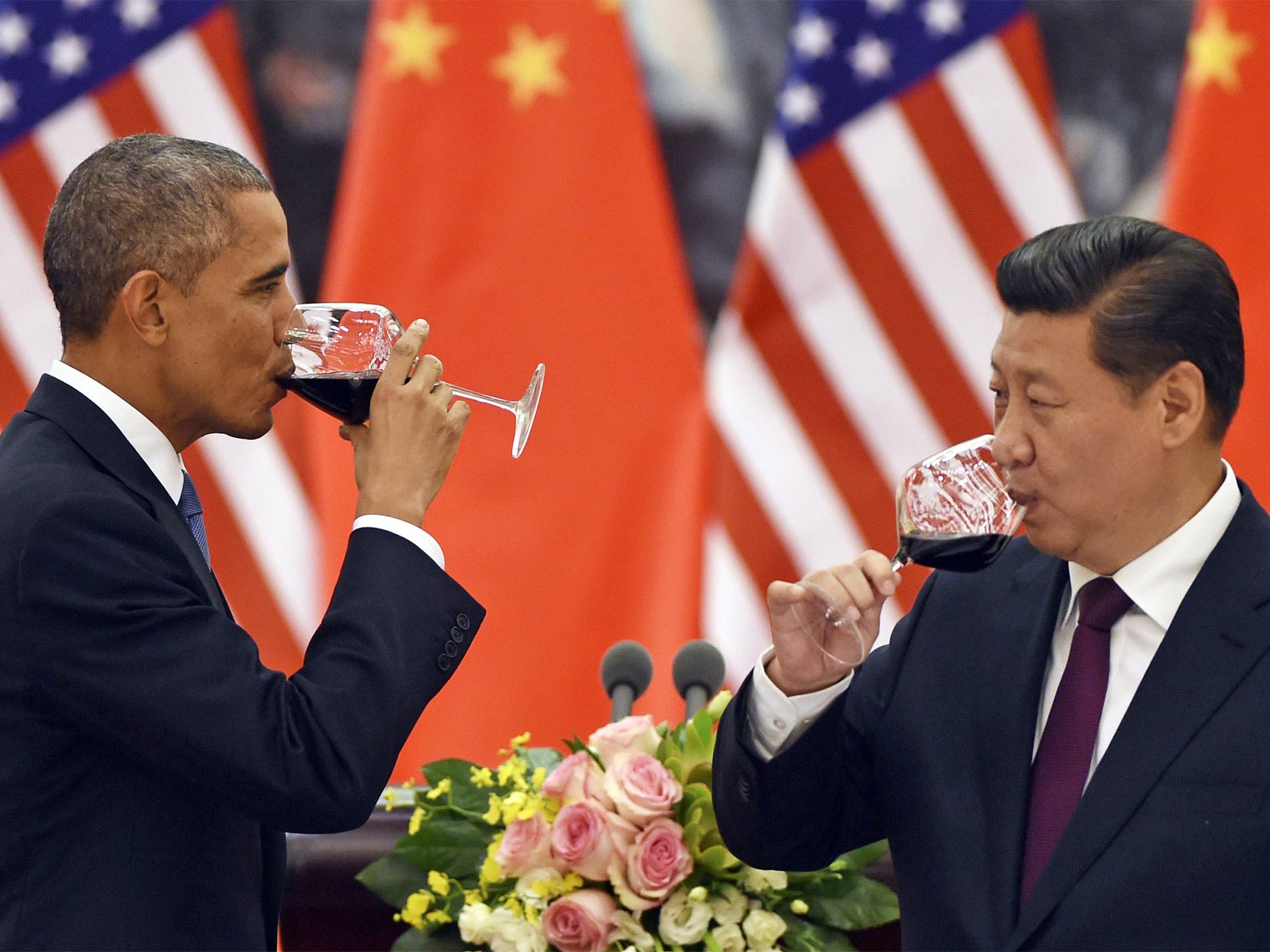Obama’s trip to China has brought good news for environmentalists, but not human rights activists
The Chinese might be willing to negotiate on reducing pollution, but on becoming more democratic they remain unmoved


Coming at the lowest point of his presidency, there was something poignant about Mr Obama’s first productive encounter with President Xi Jinping. Getting the Chinese to sign a deal on emissions was a great step forward which may improve the world’s long-term prospects of controlling climate change. It was a vivid demonstration of the potential value of top-level summiteering.
But does it bring any hope those suffering horrendous treatment at the hands of the Chinese state, from Tibet to Xinjiang to Hong Kong, will see any improvement?
Sadly, there is no reason to believe it. The US often fancies it can change the countries it gets close to, but the reason Kissinger and Nixon were able to do business with Mao was because they put that compulsion on hold. In 1971 China had yet to emerge from the chaos and horror of the Cultural Revolution. The US was still embroiled in a monstrous war with North Vietnam, and officially regarded Taiwan as the real China. Could any two politicians in modern times have had less in common than Mao and Nixon? It was a triumph of pragmatism that brought the two sides together – recognising that both had more to fear from the Soviet Union than from each other. And that signing agreements would make no difference to the way either country saw the world.
Mao jackets have been swapped for business suits, and the little red books have gone to recycling. From being an impoverished bastion of political purity, China has overtaken Japan to stand shoulder to shoulder with the US. But the pride and the aloofness are constant down the decades. It said everything that Xi’s move to mend fences with Obama took place in Beijing, with China hosting the Apec summit. For many centuries the only relations China would accept with foreign powers were those of tribute, paid by its diminutive Asian neighbours. There were no kowtows in Beijing this week but the sense of the world coming to pay the reverence due to greatness was there all the same.
For Xi to send Obama home happy was thus a matter of noblesse oblige. China’s pet trade project, the Free Trade Area of the Asia-Pacific (FTAAP), launched at the summit, may be an infant compared to its US-sponsored (and China-excluding) rival the Trans-Pacific Partnership. But it will funnel $40bn (£25bn) into a so-called “new Silk Road” to improve links and infrastructure in China’s neighbourhood – thereby helping cement China’s regional hegemony.
Diplomatic successes like this week’s are only achieved when both sides can tell their people a rousingly positive story. Obama can rightly say he made history by wresting a climate-change agreement out of the greatest country of the developing world – thereby making it much more likely that others like India can be bullied into line, too. But China was not the loser: given its problems with pollution, it has long been obvious that it needed to do something about its carbon emissions.
The birth of FTAAP is a formal declaration of who is boss in the Asian neighbourhood – reinforced by warnings about foreign support for protesters in Hong Kong, and a curt declaration, at the final press conference, that the likes of The New York Times, whose visa applications for China gather dust, can get fix the problem themselves – by minding their democratic manners.
Obama may congratulate himself that he cut a deal with Xi in the same year that he welcomed the Dalai Lama to the White House. But if he has read his Kissinger he doubtless knows that China will not be changed. The colonisation of Tibet and the emasculation of its culture will continue apace. And the quiet squeezing to death of democracy protests will not be impeded.

Join our commenting forum
Join thought-provoking conversations, follow other Independent readers and see their replies